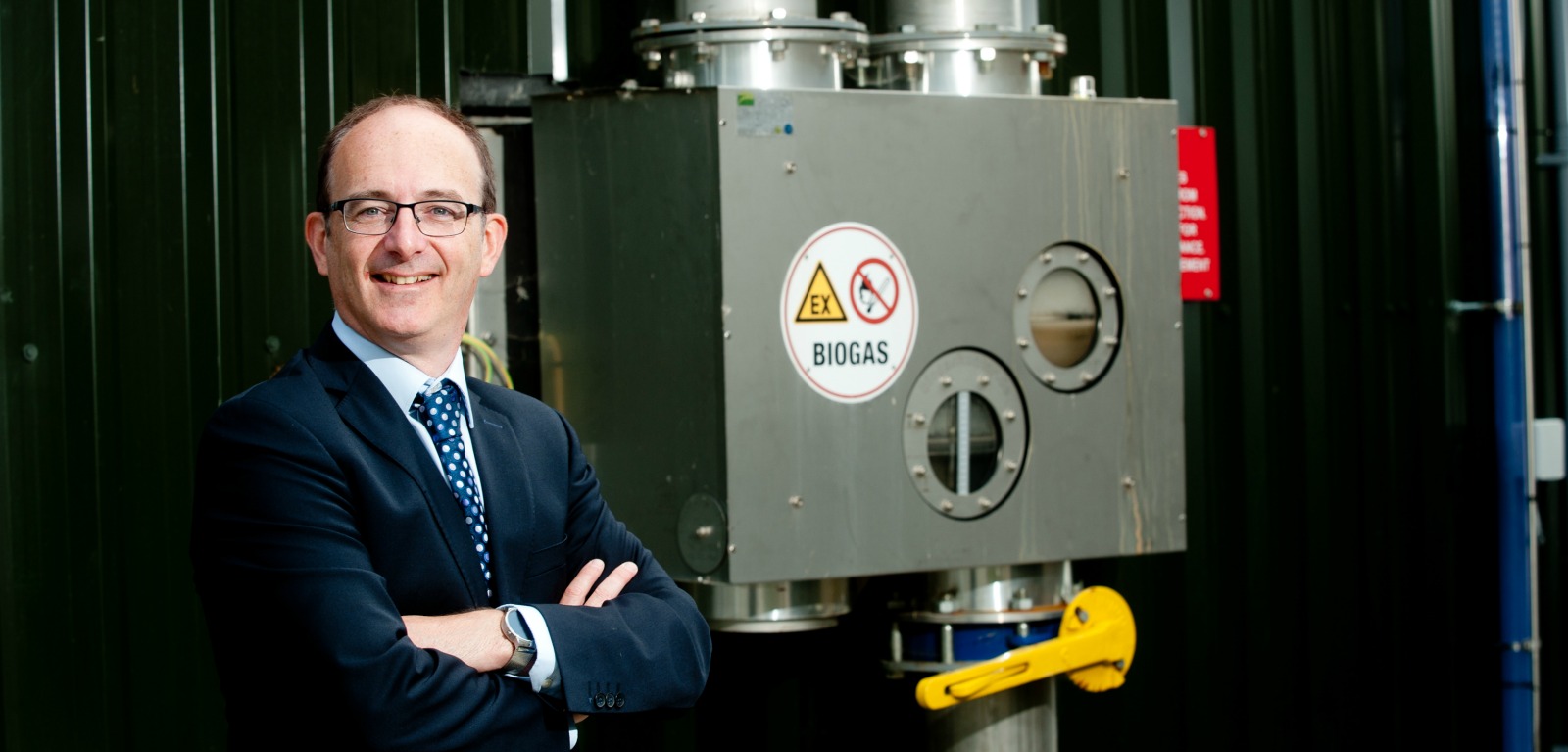Pioneering Research Programmes

DESIGNING NEW ADVANCES IN SUSTAINABLE ENERGY TECHNOLOGY
In May 2016, the Vice-Chancellor of Queen’s, Professor Patrick Johnston, led a University team to China. They took part in a number of events, including launching a conference for early career researchers.
Its theme was energy, something of particular interest to one member of the delegation – the Vice-Chancellor’s envoy to the country, Professor David Rooney, of the School of Chemistry and Chemical Engineering.
David has had research links with China for more than 14 years.
He is also Vice-Dean of the China Queen’s College, established at the China Medical University in Shenyang. Energy has been at the heart of his career – including collaborations with companies like Petronas in Malaysia, involvement in gas processing in Qatar and dealing with the problems of pollution in Saudi Arabia.
He says, ‘The event in China considered the future of energy and sustainable transport, particularly in urban settings such as Beijing. How do you provide energy for a city of 20 million people? How do you minimise pollution resulting from generation of this energy?’
These are also the kind of questions he is asking through the Sustainable Energy Research Centre, a new Pioneer Research Programme (PRP) which he is leading at Queen’s. How can technological advances be applied to support clean, affordable, dependable energy in the future?
The multidisciplinary centre will combine blue skies and applied approaches and it will build on existing strengths.
David explains, ‘Within the University there are a number of pockets of energy-related research. In Chemistry and Chemical Engineering, there are activities around biogas upgrading, battery electrolytes and improving energy efficiency in chemical processes. In Mechanical Engineering there is research into energy efficiency in transport and the integration of new types of technology to improve engine design.
‘In Electrical Engineering, we have research on smart grids. In the School of the Natural and Built Environment there is research on tidal power and climate change. Then there are the psychological aspects – how do you get the public to engage in general with energy issues? The PRP will link these research strengths.’
The three main research themes focus on areas in which Queen’s has a proven track record – renewable energy conversion and storage; transportation; and sustainable chemical manufacturing.
David says, ‘For some time we have been involved with research in anaerobic digestion, the conversion of agricultural and food-type waste into biogas. This biogas can then be upgraded into biomethane for use as transport fuels. Further upgrading of the biomethane to heavier chemicals, using energy sources such as wind, provides renewable chemical feedstocks, reducing dependence on fossil fuels.
‘Energy presents a lot of opportunities for creative thinking, especially internationally. Sustainable energy is a global challenge. It’s important to all our lives. There’s a lot of room for academics to come up with bright ideas which can have real impact. We need technology which we can send to developingcountries, technology which meets their needs and ours, that is translatable.
‘But once the technology is developed we have to work with people. Governments, NGOs, industry and the public are all involved in implementing new technologies. We have to have a holistic view of how our technology and our approach will impact on society.
‘The challenges are growing and we want our research to grow too. We want this Pioneer Research Programme to be a platform for research. We have a number of unique selling points within the University in a number of different areas. We want to make sure the PRP showcases and aligns them and allows them to progress well beyond the initial three-year period of the programme.
‘The event in Beijing not only highlighted the importance of energy but also the importance of our early career researchers in developing the innovative solutions needed to address this global challenge. We all have a part to play. It’s vital for our future.’
Read more from our experts in Sustainable Energy Research Centre
